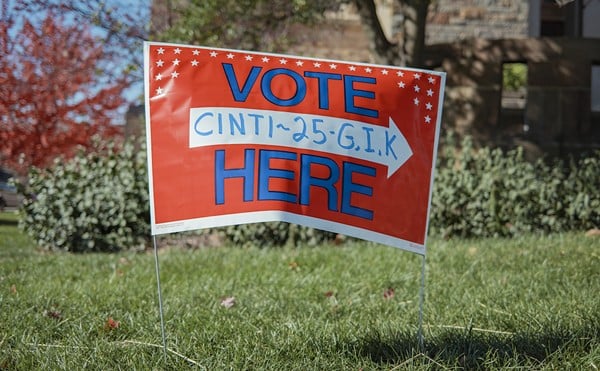I knew I was a nerd when my brothers ridiculed the way I talked. Just like fellow female black nerd Dani McClain (see The Other 'N' Word ), I got clowned for "talking white." In case you've taken a lifetime cultural commercial break, talking white means using good diction and enunciation capped by a decidedly European vocabulary.
In my case, I'd said somebody at school got "socked" in the mouth instead of "hit" or "punched." And Randy and Kenny hit me with a one-two punch of "White girl! White girl!"
That had to be 30 years ago, and in the name of black nerdiness I've been taking left turns ever since. I've consciously decided not to join, belong, fall in line or be beholden.
Being a female black nerd is especially foreboding, because there's an extra box of omission: female. Like all movements and subcultures, women are subjugated and relegated to support positions.
Black men forget that just because they've been dismissed by the world it's not OK to externalize their rage by further dismissing women once they get home.
Cultures are inclusive. I've found some solace in my black nerdiness because, unlike mainstream popular culture, black nerdiness doesn't require status quo approval and there's no secret handshake.
There's no dress code, no checklist to say you're in. It's the Me Phi Me.
I can rock Kathy any way I wanna, and it'll always be correct because the ink's perpetually drying on the blueprint. But don't get me wrong. Black female nerdiness has its desert island loneliness.
I've not met anyone whose physiology changes the way mine does at the thought of whittling away hours in a bookstore. And when I was teaching myself to skateboard and leaving DNA on the street, my girlfriends were laid up on their parents' phones listening to and telling lies that throbbed with prepubescent sex.
The first day I got my glasses 25 years ago was a bigger occasion than when I passed my driver's test. I have more books and records than clothes and shoes, and I'd rather be writing a good sentence on a Friday night than chasing an olive at the bottom of a glass in some bar or club.
Besides my mother, all my heroes are artists. Though I distrust all politicians, I vote so my grandfather won't yell at me when I get to heaven. I believe in God, but I question all religions.
Other than the Brownies, I've joined only one club in my life — the Ohio Newspaper Woman's Association — and that was so I could enter a journalism competition. Even then my editor had to strong-arm me into it.
I can count on one hand the furniture in my apartment that was purchased brand new. The rest was found curbside or negotiated for at thrift stores and yard sales. I learned more from reading and talking to people than I did during the sum total of the three times I tried and failed college.
Anywhere I am is where I'm supposed to be. It was only two years ago after my first trip abroad that I realized I'm a citizen of the world.
I picked McClain, Eric Kearney, Napoleon Maddox and Joe Bailey to illustrate the cover story because they transcend the trendiness of black nerdiness and instead embody the spirit of black nerds through the ages. Also, they're my friends and they owe me.
While interviewing each of them, I learned things about them I didn't otherwise know and saw myself through a lens darkly. They're fearless, entrepreneurial, questioning and ultimately ostracized and misunderstood because of it all. Yet they thrive.
Further, with all the brouhaha over the (white) creative class and its I'm-too-sexy-for-this-city mass exodus, the black nerds of Cincinnati have been overlooked. We've stayed.
And we stay because we know that, without us here, a black hole would suck down progressive politics, art, music, protests and socioeconomic change. We build communities and do so without the benefit or glare of media attention or self-congratulatory limelight.
We comprise The Other. We're the ones who show up looking out of place but who nonetheless will always belong.
I've been nicknamed Chad by intimates who can't quite finger my tomboyish, white frat boy daily uniform of T-shirts, cut-offs, old-school sneakers and baseball caps.
Call me what you wanna. I'm going with Kathy.
Hear Kathy's commentaries on National Public Radio's All Things Considered.





